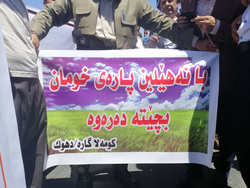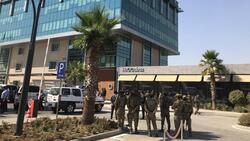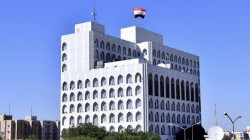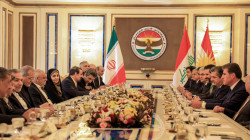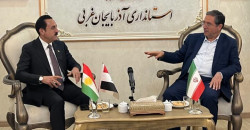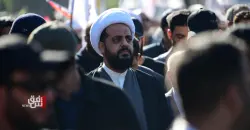Iraq as a mailbox: the missiles landed in Erbil, the explosions heard elsewhere
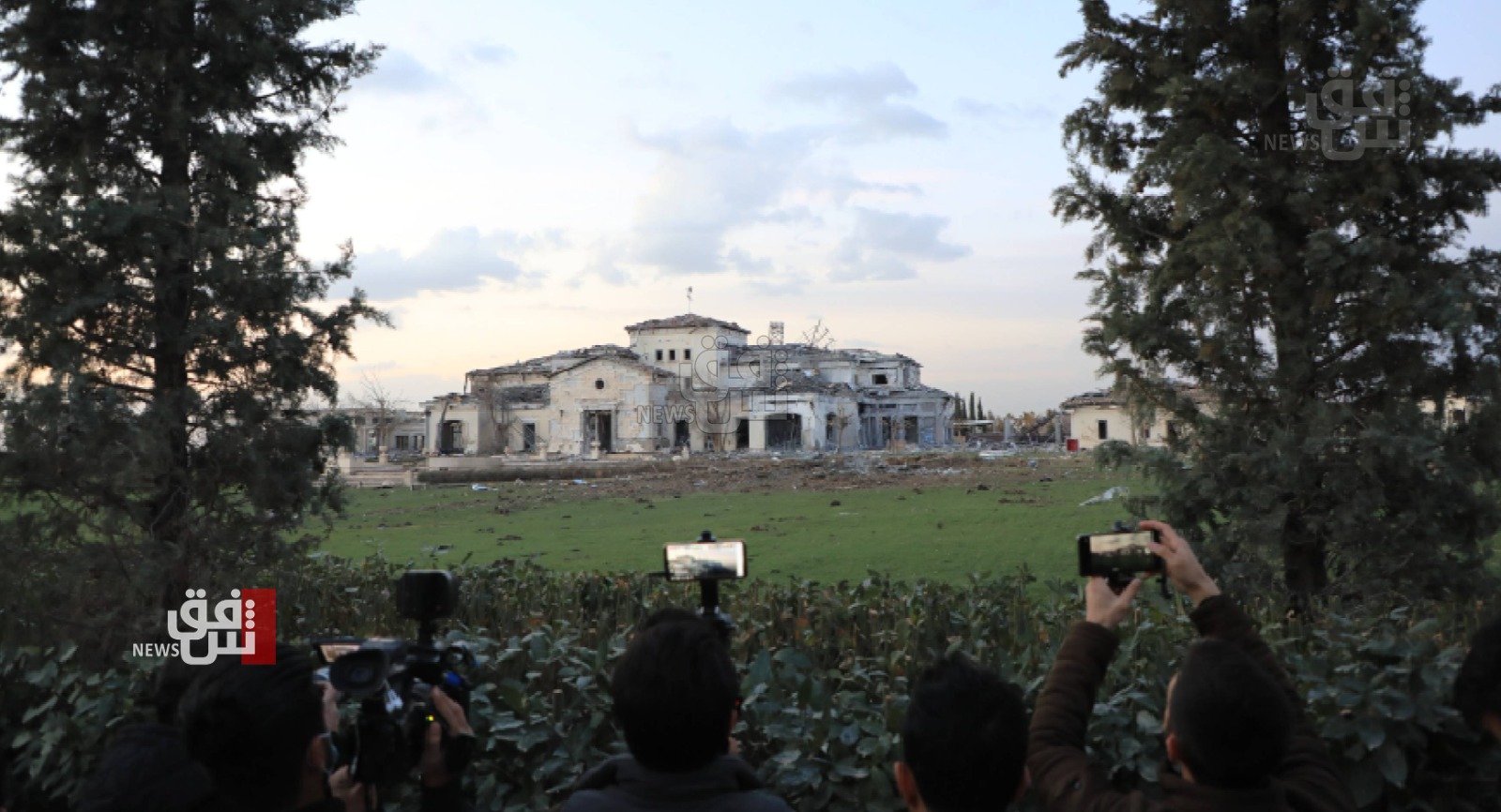
Shafaq News/ From a mailbox in Erbil, Iran intended to convey a barrage of messages, it opted to be ballistic this time, to a spectrum of recipients.
Billed by Tehran as a warning to Israel, Sunday's attack on the capital city of the Kurdistan region was also a pointed message from Iran's armed clout to its regional and international foes at a delicate moment for the Islamic Republic, Iraq, the Middle East, and the entire world.
The unusual direct strike coincides with a potential turning point in the Middle East balance of power, as talks to revive an Iranian nuclear deal face possible collapse, heightened risks of war in the Gulf, and the ongoing war in Ukraine, while in Baghdad, Iraqi leaders are trying to form a new government shorn of Iran's influence.
The developments help explain why Iran chose this moment to exhibit its readiness to use ballistic missiles, long prized by Tehran as a deterrent against the United States, Israel, and other states that contest Tehran's regional sway.
The missiles, Indeed, landed near the residence of a Kurdish businessman, a TV channel, and a building the US consular team in Erbil was due to move to. However, the thunder of the explosions was heard elsewhere...very far from Erbil.
From Tehran to al-Hannana..with love:
Inside Iraq, the strike was a loud warning to Iran's adversaries in the midst of critical talks over the formation of a government following the October general election.
That election handed a victory to powerful Muqtada al-Sadr, a Shiite leader who opposes Iranian influence and is the chief rival to fellow Shiite parties aligned with Iran.
Spurred by the sweeping victory, the bloc of the firebrand Shiite cleric has been mobilizing impetus behind a "National Majority Government", challenging the status quo "consensus governments" the Iran-backed parties have been lobbying for.
Al-Sadr repeatedly said he will ally himself with whoever puts Iraq's national interests first. That is an indication that he seeks to exclude some Iran-backed blocs in favor of parties with cross-sectarian support.
For months, Iran tried, via a series of delegations and mediations, to force its allies into a single camp with the bloc of the Sadrist leader in a quest to maintain influence inside the anticipated government. However, the maverick leader exhibited a solid immunity to their bonding offers. He even went to forge an alliance with the Kurdistan Democratic Party (KDP) that runs Erbil, as well as the leading Sunni parties.
For Tehran, this is an unusual pushback from a Shiite party in Iraq that comes with an unwanted burden to its foreign policy. Through Sunday's message, the Iranians made sure that al-Sadr knew that they are not ready to surrender their influence in Baghdad at the moment.
A message to Israel:
In practice, Israel and Iran have been engaged in a direct clash for years now, and there has been a clear trend of escalation.
One could list key incidents such as the downing of an Iranian drone that had penetrated Israeli airspace in February 2018 and Iran's attempted cyberattack on Israel's water system in April 2020.
For its part, Israel has ramped up its attacks against Iran's Islamic Revolutionary Guard Corps (IRGC) and its proxies in the region with at least 15 air raids in Iran's regional ally Syria in the past year, nine of which were carried out in the last four months, according to a Reuters tally.
The IRGC said the midnight attack on Erbil was aimed at Israeli "strategic centers" and was retaliation for an Israeli air raid that killed two of its members in Syria last week.
For years, Israel has regarded Syria as a "potshot" target practice, but none of this happened, and Iraq managed to avoid becoming another theater of war between the regional rivals.
For this reason, the attack on Erbil could be read as a message from to Iran to Israel that the rules of engagements have changed and Iraq might be a new battlefield for their battle.
A message to the US..in Vienna:
The thunder of the ballistics coming from the east echoed in Vienna. It speaks much about spiraling tensions between Iran and Washington that literally developed in a matter of days. The incoming ballistic missiles on Erbil are baffling when considering that the trend of the multi-mediated nuclear talks in Vienna was moving toward conclusions if not for the bloody war in Ukraine.
That conflict has the world into a tailspin. Suddenly, the talks were sent into a limbo mode after so much optimism burgeoning in Tehran, Washington, Moscow, London, Paris, Beijing, and Berlin. The Ukraine disaster did not really suggest the talks were deadlocked. It was merely put on hold for the international system to start ticking normally, but a last-minute Russian demand plunged it into uncertainty.
"The Biden Administration's hell-bent pursuit of a nuclear deal with Iran grows harder to understand with each provocation from Tehran," the Wall Street Journal editorial said in the aftermath of the attack.
"Iran typically commits mayhem through proxy militias, but this time Tehran took credit," it added, "Notably, however, the missiles landed in Kurdish territory in northern Iraq. The Kurds are America’s best allies in that country."
The pro-republican newspapers said, "It is likely the IRGC wants to send a message about the vulnerability of US interests and allies in the region as the two sides close in on a renewed nuclear deal."
Strategic Center or Strategic Messages?
While Baghdad was trying to sober up from the shock of the attack, Iranian media was already sharing its very minutes and the IRGC was celebrating a "victory of the Iranian nation."
A "strategic center for conspiracy and mischiefs of the Zionists was targeted by powerful precision missiles fired by the Islamic Revolutionary Guards Corps", it said in a statement on Sunday, "once again, we warn the criminal Zionist regime that the repetition of any mischief will face harsh, decisive and destructive responses."
The statement, according to analysts, reflects the new status of Iraq. A "backyard" of Iran where it can shadow-box an adversary that is only a few kilometers far from its bases in southern Syria.
Firas Elias, a researcher specializing in security and strategic affairs, told Shafaq News Agency, "it seems that Iran is seeking soft targets that do not necessarily unfold into an escalation."
"Iran is aware that it evades a proportional response if it chooses Iraq as a medium for its retaliation because Iraq does not have the capacity to react and escalate," he said, "it is also aware that the US will only respond with condemnation, especially since the bombardment did not cause any damage. Israel, however, would respond in Syria, or even in Iran's heartland."
Elias said that the attack on the "alleged Mossad headquarters in Erbil" was a "media dramatization" that accompanied overblown media reports about dismantling a Mossad network in the Iranian province of Azerbaijan.
"The attack was intended to deliver a message on three fronts: the first is related to the political churning in Iraq over the government formation, the second is related to the regional shift that disfavors it, and the third is related to the nuclear talks the west has halted," he continued," the message is: it is either us or chaos."
Political and Security Analyst Sarmad al-Bayati believes that Iran was addressing Iraq, the Kurdistan region, and the Kurdish leader Masoud Barzani, "you are all on the anvil."
"Iraqi security forces have not found any Mossad headquarters in Erbil, which renders Iran's argument a weak one," al-Bayati elaborated, "of course, the attack on Erbil is loaded with political implications. It might be a flashlight on certain political issues, particularly after Esmail Qa'ani's recent meeting with the KDP leader Masoud Barzani in Erbil."
Conflicting reactions
The roars of the blasts did not conceal the subtle division inside Iran's decision-making bodies regarding the attack. It definitely cannot cover the profound disagreement over the approach to Vienna talks or the engagement rules with Israel.
Early after the attack, spokesperson to Iran's parliamentary national security and foreign policy commission Mahmoud Abbaszadeh Meshkini, stated to Iranian media that his country "has nothing to do with the attack on Erbil."
The Iranians, suddenly, became more comfortable with the truth after the IRGC claimed responsibility for the attack. Iran's ambassador to Iraq, Iraj Masjedi, said in a speech he delivered in Karbala that the attack on the capital of the Kurdistan region was "not intended to target the Iraqi leadership, but a Mossad espionage center there [in Erbil]."
Of course, Iran-aligned factions were supportive of Iran's behavior. Some said that it has the right to bomb Erbil, others justified the attack as a response to drone attacks into Iran's depth from its western borders. For others, it was a" blessed" operation.
How did the Iraqi government, parties react?
Apart from the parties directly involved in the attack (US and Erb condemned, Iran defended, its proxies blessed), the attack prompted a spectrum of reactions.
Very shortly after the attack, the leader of the Sadrist movement was the first to respond. Outraged, he tweeted, "Erbil is under the fire of loss and betrayal, and under pain of starvation, as if the Kurds were not Iraqis. Rather, they are the lung of Iraq and its indivisible part."
"Erbil will not kneel except for moderation, independence, and sovereignty. Peace and love for you, Erbil, and you Kurds, and patience until the achievement of the national majority government."
Al-Sadr described the attack as a "dangerous precedent" saying "the Iraqi lands, from its north to south and from its east to west, should not be used as an arena for political, security and military conflicts."
He also called for issuing a protest letter to Iran and the United Nations and summoning the Iranian ambassador.
Iraq's caretaker Prime Minister Mustafa al-Kadhimi said in a tweet, "the aggression which targeted the dear city of Erbil and spread fear among its inhabitants is an attack on the security of our people...Our security forces will investigate and stand firm against any threats towards our people."
The day after the attack, he met with Kurdish officials and inspected the site of an Iranian missile attack near the US consulate.
An Iraqi official in Baghdad said al-Kadhimi’s visit to Erbil was meant to express solidarity with the Kurdistan region and show support for its government.
"We are in absolute agreement that the repeated attacks on Iraq's sovereignty must stop," Kurdistan's Prime Minister Barzani said after a meeting with al-Kadhimi.
Iraq "awaits a stance from the Iranian political leadership that rejects aggression," the Ministerial Council for National Security said after a meeting to discuss the attack launched from Iranian territory.
Iraq's foreign ministry summoned the ambassador of Iran to protest the missile attack, denouncing the "flagrant violation of (Iraqi) sovereignty," Iraq protested over the missile strikes that had caused "material losses" and "damage to civilian installations and houses.
Does Iraq need to upgrade its aerial defenses?
The recent attack has raised question marks about Iraq's need for an advanced air defense system. Security expert tweeted Fadhel Abu Ragheef tweeted, "unfortunately, Iraq has become a conflict arena...Iraq is overwhelmed with deadlocks. Any pressure from outside might exacerbate the situation. An advanced radar system has become a must."
